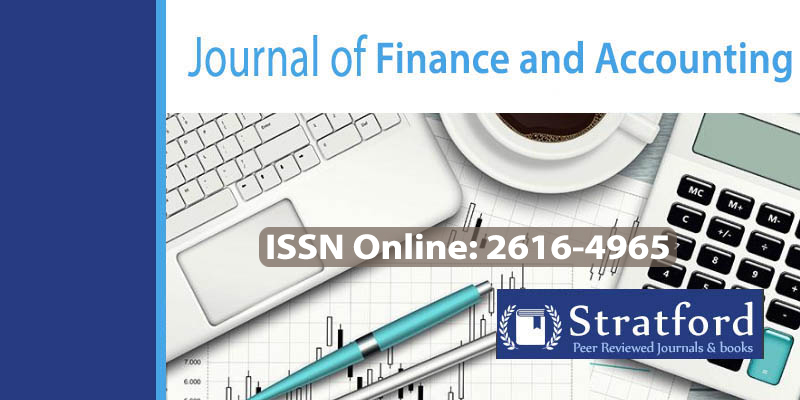Cashflow Management Practices and the Financial Performance of Five-Star Hotels in Nairobi County, Kenya
DOI:
https://doi.org/10.53819/81018102t2257Abstract
Financial performance of entities in the hospitality industry continue to elicit widespread scholarly interest in the modern competitive business landscape. Effective cashflow management practices remain the mainstay of financial performance in most organizations. However, scholarly research on cashflow management practices enable performance improvement in Kenya’s hospitality industry particularly five-star hotels in Nairobi County is largely limited. The current study examined cashflow management practices’ impact on the financial performance of five-star hotels in Nairobi County, Kenya. The theory that underpinned the study is the Liquidity Preference Theory. A descriptive research design was used and it involved using a survey distributed to all five-star hotels in Kenya. Financial and general managers and their assistants from each five-star hotel provided insights through a closed-ended questionnaire that enabled the researcher to collect and analyze numeric data. Data collected was coded and entered into the package referred to as the Statistical Package for Social Sciences (SPSS) used to analyze quantitative data. The analyzed data revealed that there is a significant relationship between cashflow management practices (p=0.039; p<0.05) and the financial performance of five-star hotels in Nairobi City County, Kenya. The study recommended that five-star hotels in Nairobi County should adopt effective strategies for cashflow management to actualize improved financial performance.
Keywords: cashflow management practices, financial performance, Nairobi County, five-star hotels.
References
Abbasi, M. S., Munir, Q., & Ahmed, M. (2020). The impact of working capital management on profitability: Evidence from the textile sector of Pakistan. Journal of Business and Management Studies, 6(2), 32-47.
Ali, M., & Ahmed, K. (2017). Working capital management and firm’s profitability: Evidence from hospitality industry of Pakistan. Journal of Financial Reporting and Accounting, 15(2), 207-223.
Aman, Z., & Nguyen, T. (2021). Cash management and firm performance: A study of Pakistani listed firms. International Journal of Accounting & Information Management, 29(1), 56-77
Ergün, A. (2018). Working capital management and profitability: Evidence from Turkey. The Journal of Accounting and Finance, 76(2), 127-139.
Ghosh, S. K., & Mondal, S. (2021). Accounts receivable management practices and financial performance: Evidence from different industries. Managerial Finance, 47(1), 130-148.
Gibson, C., & Dennett, J. (2018). Financial performance measures in the hospitality industry: A systematic review. International Journal of Contemporary Hospitality Management, 30(1), 280-305.
Gitman, L. J., & Zutter, C. J. (2019). Principles of managerial finance. Pearson
Government of Kenya. (2020). Economic Survey 2020. Nairobi: Kenya National Bureau of Statistics.
Gursoy, D., & Nunkoo, R. (2021). Post-COVID-19 recovery strategies for the hotel industry: Lessons from past crises. Journal of Travel Research, 00472875211020908.
Hsu, Y.-C., Chang, C.-H., & Kuo, T.-S. (2016). Assessing the relationship between working capital management and financial performance: A case study of the hotel industry in Taiwan. Journal of Quality Assurance in Hospitality & Tourism, 17(4), 422-438.
Jia, Y., & Zhang, M. (2018). The impact of accounts payable management on the financial performance of Chinese listed companies. International Journal of Economics, Commerce, and Management, 6(4), 86-96.
Keynes, J. M. (1936). The General Theory of Employment, Interest, and Money. Palgrave Macmillan.
Kieso, D. E., Weygandt, J. J., & Warfield, T. D. (2016). Intermediate accounting (16th ed.). John Wiley & Sons.
Kim, Y., & Kim, Y. (2019). The impact of working capital management on firm profitability: Evidence from Korean firms. Sustainability, 11(11), 3064.
Li, S., & Li, X. (2019). Impact of accounts payable management on the profitability of Chinese-listed companies: Evidence from panel data analysis. Journal of Business Research, 100, 330-337.
McKinsey & Company. (2017). How Companies Can Get Better at Strategy. Retrieved from https://www.mckinsey.com/business-functions/strategy-and-corporate-finance/our-insights/how-companies-can-get-better-at-strategy
Nzioka, D., Mwania, J., & Kalio, A. (2021). Analyzing Working Capital Management Methods and Financial Performance of Nairobi City County Five Star Hotels. International Journal of Economics, Commerce, and Management, 9(3), 255-268.
Ross, S. A., Westerfield, R. W., & Jordan, B. D. (2016). Fundamentals of corporate finance. McGraw-Hill Education.
Smith, J. (2020). Research Methods in Finance: A Guide to Using Descriptive Research Design. Journal of Financial Research, 45(2), 137-150.
Tourism Regulatory Authority. (2020). Classification of Tourist Accommodation Establishments in Kenya. Retrieved from



